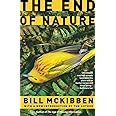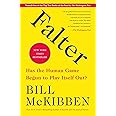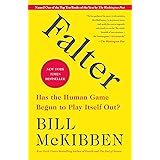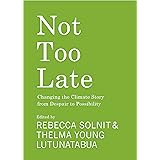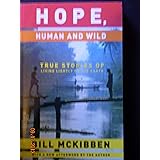
Enjoy fast, free delivery, exclusive deals, and award-winning movies & TV shows with Prime
Try Prime
and start saving today with fast, free delivery
Amazon Prime includes:
Fast, FREE Delivery is available to Prime members. To join, select "Try Amazon Prime and start saving today with Fast, FREE Delivery" below the Add to Cart button.
Amazon Prime members enjoy:- Cardmembers earn 5% Back at Amazon.com with a Prime Credit Card.
- Unlimited Free Two-Day Delivery
- Streaming of thousands of movies and TV shows with limited ads on Prime Video.
- A Kindle book to borrow for free each month - with no due dates
- Listen to over 2 million songs and hundreds of playlists
- Unlimited photo storage with anywhere access
Important: Your credit card will NOT be charged when you start your free trial or if you cancel during the trial period. If you're happy with Amazon Prime, do nothing. At the end of the free trial, your membership will automatically upgrade to a monthly membership.
Buy new:
-38% $12.35$12.35
Ships from: Amazon.com Sold by: Amazon.com
Save with Used - Acceptable
$8.85$8.85
Ships from: Amazon Sold by: Murfbooks

Download the free Kindle app and start reading Kindle books instantly on your smartphone, tablet, or computer - no Kindle device required.
Read instantly on your browser with Kindle for Web.
Using your mobile phone camera - scan the code below and download the Kindle app.

OK
 Audible sample Sample
Audible sample Sample 


Eaarth: Making a Life on a Tough New Planet Paperback – March 15, 2011
Purchase options and add-ons
- Print length288 pages
- LanguageEnglish
- PublisherSt. Martin's Griffin
- Publication dateMarch 15, 2011
- Dimensions5.63 x 0.64 x 8.35 inches
- ISBN-100312541198
- ISBN-13978-0312541194
The Amazon Book Review
Book recommendations, author interviews, editors' picks, and more. Read it now
Frequently bought together
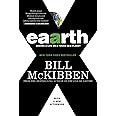
Similar items that may ship from close to you
Editorial Reviews
Amazon.com Review
Amazon Exclusive: A Conversation Between Curt Stager and Bill McKibben
Curt Stager is the author of Deep Future: The Next 100,000 Years of Life on Earth.
Bill McKibben: How'd you come to worry about this global warming stuff in the first place?
Curt Stager: When your book, The End of Nature, first came out, I already knew about global warming but wasn't very worried about it yet. I'm a paleoclimatologist, so I was used to thinking about huge climatic changes of the distant past, and I also wasn't convinced by what was then the available evidence that humans are driving most of today's trend. But now so many excellent studies clearly demonstrate our central role in the warming of the last 30-40 years that I've moved on from "is it really happening" mode to "what does it mean" and "what can we do about it?" Another factor was a project that you asked me to do in support of one of your articles several years ago - to study the weather records in our home region in and around northern New York and Vermont. The latest data show that much of this area is actually warming faster than the global average, and ice stays on our lakes two weeks less in an average winter than it did a century ago. Because of all this, I suppose you could say that I'm a "reformed climate skeptic" now.
Bill McKibben: What kind of timescales do we need to be thinking on to really understand what's happening?
Curt Stager: We've got to expand our view of this issue a thousand-fold to really grasp it. According to the latest research, much of the heat-trapping carbon dioxide we release during our lifetimes will linger in the air not just for centuries but for tens of thousands of years, long enough to affect future ice ages.
Curt Stager: Eaarth is one of the most amazing book titles I've ever seen; in a single word it beautifully captures the essence of what you're trying to tell us about our influences on the planet. How did you come by it?
Bill McKibben: Well, I wanted a way to get across the idea that we're already living on an altered planet. Not as altered as it's going to be, but--for people my age, the iconic image of our planet was that first photo back from the Apollo spacecraft. And the world does not look like that any more. A lot less white up top! Somehow we have to figure out how to get the message across that global warming is not a problem for the future, it's a desperate crisis already.
Bill McKibben: Scientists are forever struggling to communicate effectively with the general public. You're a whiz at it, as this book, and your work in places like National Geographic, make clear. What advice would you give your colleagues?
Curt Stager: That's a fine compliment coming from a master wordsmith like yourself, but it's particularly nice to hear in my case because when I first started my scientific career, back in the 1980s, communicating with the public was openly frowned upon. Nowadays I'm glad to see that it's much more widely accepted, even encouraged, and there are many great opportunities for scientists to be trained in such things. I was fortunate enough to attend a public communications workshop sponsored by the National Science Foundation, for example. But don't be fooled, you science types; there's a lot more to writing effectively for the public than you may think. When it's done properly it appears smooth and natural, but that's not because it's easy; it's a sign of skill and effort. Pay this craft the respect it deserves and learn from people who know what they're doing, then go out and really earn your grants by letting us all know how you spent our tax dollars!
Curt Stager: You do a good job of keeping up with the latest developments in climate research even though you're not a professional scientist. Do you have any advice in that regard for non-science types who are trying to wade through the information jungle in search of current, reliable information about climate change?
Bill McKibben: Like any other huge field, you need some guides--picking someone like Jim Hansen who's been right again and again seems like a good strategy. You need to keep abreast of the important science as it develops. And you need to find some journalists who have paid attention for a long time: Bryan Walsh at Time, Andy Revkin at the New York Times, and so forth. But the trick is not to be too caught up in the details, and keep your eye on the main current: the debate about whether we're warming the planet is no longer interesting. What's interesting is what we're going to do about it.
Review
“ 'Eaarth' is the name McKibben has decided to assign both to his new book and to the planet formerly known as Earth. His point is a fresh one that brings the reader uncomfortably close to climate change. Earth with one "a," according to McKibben, no longer exists. We have carbonized it out of existence. Two-a Eaarth is now our home.” ―The New York Times Book Review
“A passionate appeal. . . . McKibben's engaging and persuasive book will add greatly to the sense of urgency. It will add realism to the case for strong adaptation to the changes that our past and current actions are bringing to our natural world.” ―The New York Review of Books
“Bill McKibben may be the world's best green journalist . . . What really sets Eaarth apart from other green books is McKibben's prescription for survival. This won't be just a matter of replacing a few lightbulbs; McKibben is calling for a more local existence lived 'lightly, carefully, gently.' It's a future unimaginable to most of us--but it may be the only way to survive.” ―Time
“Bill McKibben [is] probably the nation's leading environmentalist... Important strands of environmental thought merge in McKibben's new book, making for some truly scary reading and prompting urgent questions about the nature of the environmental catastrophe at hand... [Eaarth] offers a view of economic growth not typically encountered in mainstream discussion, with all its moral dimensions unmasked and clarified... The urgency of his moral advocacy demands attention.” ―The Boston Globe
“Superbly written . . . McKibben is at his best when offering an elegant tour of what is already going wrong and likely to get even worse. . . . Eaarth is a manifesto for radical measures.” ―The National Interest
“A valuable slice of acid-tongued reality.” ―San Francisco Chronicle
“If one book can help, this is it.” ―Winnipeg Free Press
“This book must be read and his message must be understood clearly in Congress and in the streets. Indeed, throughout the world.” ―The Capitol Times (Madison, Wis.)
“Sounds a clarion at a time when the findings of climate scientists have been all but drowned out by skeptics and right-wing bombast. McKibben, however, does not doubt that facts will trump ideology. . . . McKibben is an eloquent advocate.” ―The Oregonian
“What I have to say about this book is very simple: Read it, please. Straight through to the end. Whatever else you were planning to do next, nothing could be more important.” ―Barbara Kingsolver, author of Animal, Vegetable, Miracle
“With clarity, eloquence, deep knowledge and even deeper compassion for both planet and people, Bill McKibben guides us to the brink of a new, uncharted era. This monumental book, probably his greatest, may restore your faith in the future, with us in it.” ―Alan Weisman, author of The World Without Us
“The terrifying premise with which this book begins is that we have, as in the old science fiction films and tales of half a century ago, landed on a harsh and unpredictable planet, all six billion of us. Climate change is already here, but Bill McKibben doesn't stop with the bad news. He tours the best responses that are also already here, and these visions of a practical scientific solution are also sketches of a better, richer, more democratic civil society and everyday life. Eaarth is an astonishingly important book that will knock you down and pick you up.” ―Rebecca Solnit, author of A Paradise Built in Hell and Hope in the Dark
“Bill McKibben foresaw 'the end of nature' very early on, and in this new book he blazes a path to help preserve nature's greatest treasures.” ―James E. Hansen, director, NASA Goddard Institute for Space Studies
“Bill McKibben is the most effective environmental activist of our age. Anyone interested in making a difference to our world can learn from him.” ―Tim Flannery, author of The Weather Makers and The Eternal Frontier
About the Author
Bill McKibben is the author of more than a dozen books, including the best sellers Falter, Deep Economy, and The End of Nature, which was the first book to warn the general public about the climate crisis.
He is the Schumann Distinguished Scholar in Environmental Studies at Middlebury College and the winner of the Gandhi Prize, the Thomas Merton Prize, and the Right Livelihood Prize, sometimes called “the alternate Nobel.” He lives in Vermont with his wife, the writer Sue Halpern. He founded the global grassroots climate campaign 350.org; his new project, organizing people over sixty for progressive change, is called Third Act.
Product details
- Publisher : St. Martin's Griffin; First Edition (March 15, 2011)
- Language : English
- Paperback : 288 pages
- ISBN-10 : 0312541198
- ISBN-13 : 978-0312541194
- Item Weight : 10.4 ounces
- Dimensions : 5.63 x 0.64 x 8.35 inches
- Best Sellers Rank: #897,008 in Books (See Top 100 in Books)
- #1,579 in Ecology (Books)
- #1,969 in Environmental Science (Books)
- #2,168 in Environmentalism
- Customer Reviews:
About the author

Bill McKibben is the author of The End of Nature, Deep Economy, and numerous other books. He is the founder of the environmental organizations Step It Up and 350.org, and was among the first to warn of the dangers of global warming. He is a scholar in residence at Middlebury College and lives in Vermont with his wife, the writer Sue Halpern, and their daughter.
Customer reviews
Customer Reviews, including Product Star Ratings help customers to learn more about the product and decide whether it is the right product for them.
To calculate the overall star rating and percentage breakdown by star, we don’t use a simple average. Instead, our system considers things like how recent a review is and if the reviewer bought the item on Amazon. It also analyzed reviews to verify trustworthiness.
Learn more how customers reviews work on Amazon-
Top reviews
Top reviews from the United States
There was a problem filtering reviews right now. Please try again later.
His easy way of writing, laced with humour and unforgettable images, make this book readily understandable for everyone. And it's short: You can read it in just a few days.
In the first half, he explains how life on our planet today has been changed by global warming, Some of what you read will surprise you and even shock you, but all of it is interesting.
On page 99, he starts writing about solutions -- possibilities for our future and methods for adapting to our new environment. He writes, "Like someone lost in the woods, we need to stop running, sit down, see what's in our pockets that might be of use, and start figuring out what steps to take."
He tells us how we can manage the changes that will be affecting our lives, rather than just let them happen to us. He says, "We've got to make our societies safer, and that means making them smaller. It means, since we live on a different planet, a different kind of civilization." He describes how we can make this very different world workable -- "how we might keep the lights on, the larder full, and spirits reasonably high."
Alan Weisman, author of The World Without Us, writes, "With clarity, eloquence, deep knowledge, and even deeper compassion for both planet and people, Bill McKibben guides us to the brink of a new, uncharted era. This monumental book, probably his greatest, may restore you faith in the future, with us in it."
I'll give this book five stars any day. My children and grandchildren will be getting copies to keep by their bedsides, to be read and re-read in the years to come.
McKibben is an adept communicator. He writes clearly, with feeling, and with the essential minimum of statistics in a field enveloped by them. He paints a broad-brush picture with relatively little detail, indicating both where we are and where we can go if we collectively decide to do so.
He states clearly that the basic challenge is adapting our collective lifestyle to a new reality, fundamentally adjusting the way we perceive ourselves, the world, and our relation to it. That is, the major challenge of adapting to a world already changed is cultural, how we think and perceive our lives.
Technology, economics, and policy are important, but secondary to the thoughts, actions, and desires of six billion people. The "how" of changing society is ultimately mechanical, procedural, and dependent on collective intentions.
There is no recipe for this kind of cultural process, no "solution" that someone else - government, business, or other organization - can make, though these agencies will necessarily be part of the process.
For a provocative, insightful, and surprising consideration of this kind of cultural transition, try Not-Two Is Peace, by Adi Da Samraj .
A somewhat more technical and formal treatment of the same ground covered by Eaarth is available in The Bridge at the Edge of the World: Capitalism, the Environment, and Crossing from Crisis to Sustainability, by Gus Speth .
Meanwhile, Eaarth is informative on many levels, and recommended.
Overall, I thought this book was quite interesting. I found McKibben's subtle sense of humor entertaining, which kept the book from becoming dull. He provides a wealth of information and ideas. As someone who had never really given climate change much thought, I learned a great deal through this book. McKibben's proposed solutions primarily apply to the energy and food industries. Out of my own personal curiosity, I wish that he had spent more time discussing how he believes our transportation system should change. Although it's apparent that he thinks we should be traveling less, I would be interested in reading more detailed information. I also have mixed feelings about his claim that the Internet alone would keep our lives from becoming dull if we were to adopt simpler lives based in rural communities. Since we are so accustomed to a pursuit of novelty and entertainment, can it really be that simple? On the other hand, maybe that's his point. That lifestyle may not be as luxurious as the one we're used to, but if we are to survive, it will have to do.
This is a very thought-provoking book that will inspire some people and could potentially upset others.






